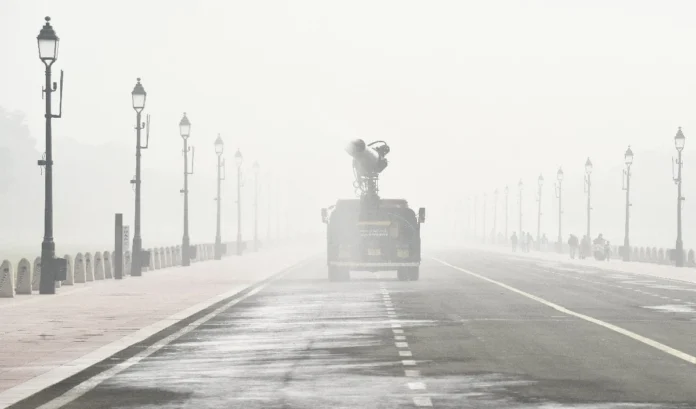The sun is shining in the national capital Delhi but air pollution still remains the same. Air quality continues to remain at a poor level. Meanwhile, the Commission for Air Quality Management (CAQM) has given a new order. According to this order, the state governments in Delhi-NCR will have to ensure that all classes up to class 12 are run in “hybrid” mode. According to the Commission, primary schools in other areas of Delhi and NCR do not have the capacity or reach to conduct classes completely in online mode.
The air quality panel’s order comes hours after the Supreme Court asked the commission to consider resuming physical classes in schools and colleges, saying many students have no time to attend online classes. There is lack of mid-day meal and infrastructure.
However, the top court refused to relax the GRAP-4 anti-pollution restrictions in Delhi-NCR and said it will not relax the GRAP-3 restrictions until it is satisfied that AQI levels are continuously coming down. Or cannot order restrictions below Group-2. Given Delhi’s poor air quality, which had fallen to “severe” levels but has since improved slightly, schools are conducting online classes.
Preparing to restart school
Soon after the Supreme Court directive, schools in Delhi-NCR stepped up efforts to protect the health of students in case physical classes resume. Schools suggested students to wear masks and reduce outdoor activities, among other measures, to avoid any health risks associated with air pollution. Rajesh Hasija, principal of Indraprastha School, stressed on banning activities that can aggravate breathing problems.
He said, “Masks are mandatory for students and we have minimized all outdoor activities. Morning assemblies will now be held inside classrooms and yoga or exercise sessions will be postponed as there is a possibility of inhaling pollutants. Increases.”
However, Aparajita Gautam, president of Delhi Parents Association, highlighted the dilemma faced by many parents. “It seems like a no-win situation,” Gautam said. “If we send our children to school, they are at risk due to pollution, if we keep them at home, they are deprived of essential personal activities.” Are.”
Delhi recorded an average AQI of 349 air pollution on Monday, even as the Supreme Court rapped the city government and police for “serious lapses” in implementing GRAP restrictions. Seven of Delhi’s 38 air quality monitoring stations reported the AQI level in the “severe” category at 5:30 pm, which increased to 14 at 7 pm. According to the latest data from the Central Pollution Control Board (CPCB), Delhi’s 24-hour average AQI stood at 349 at 4 pm.




